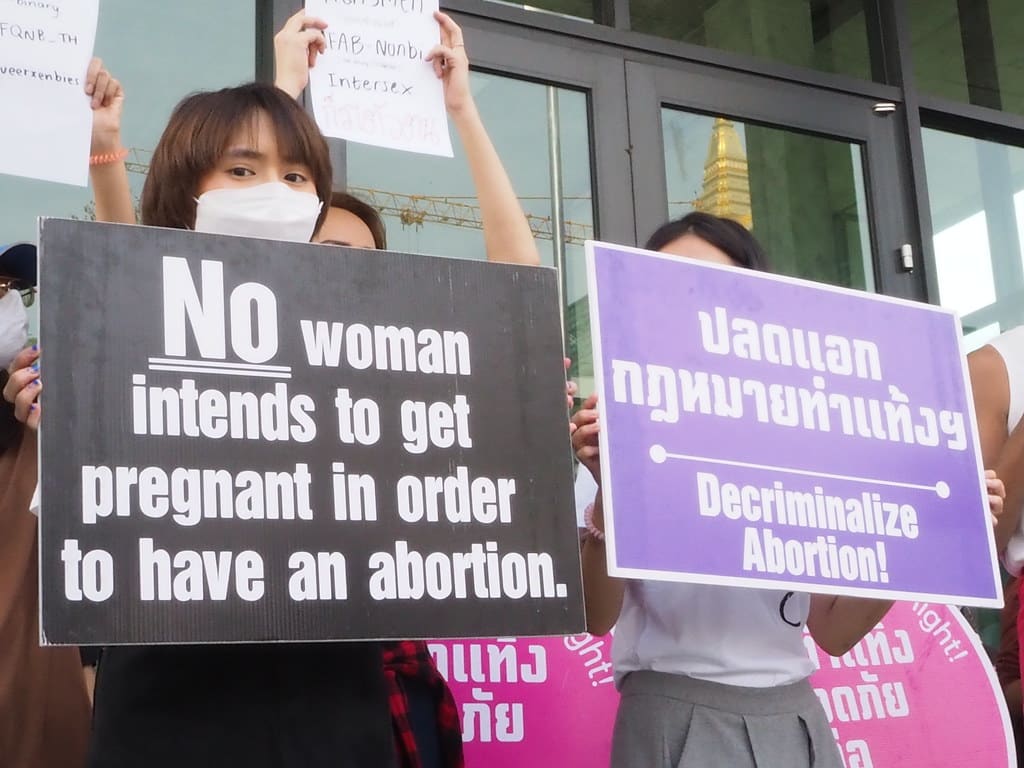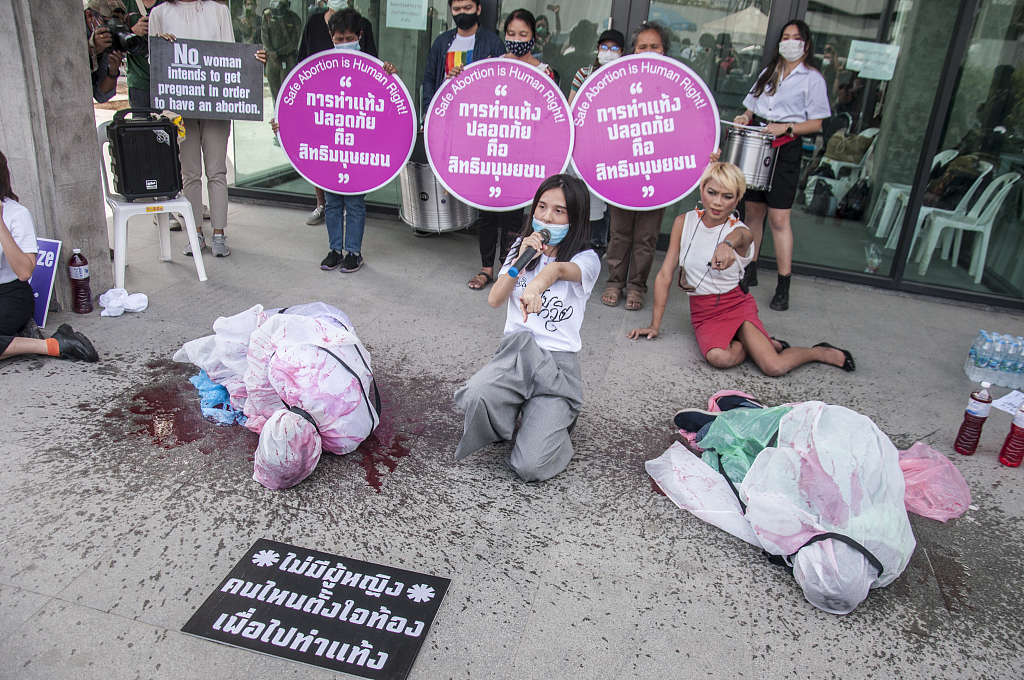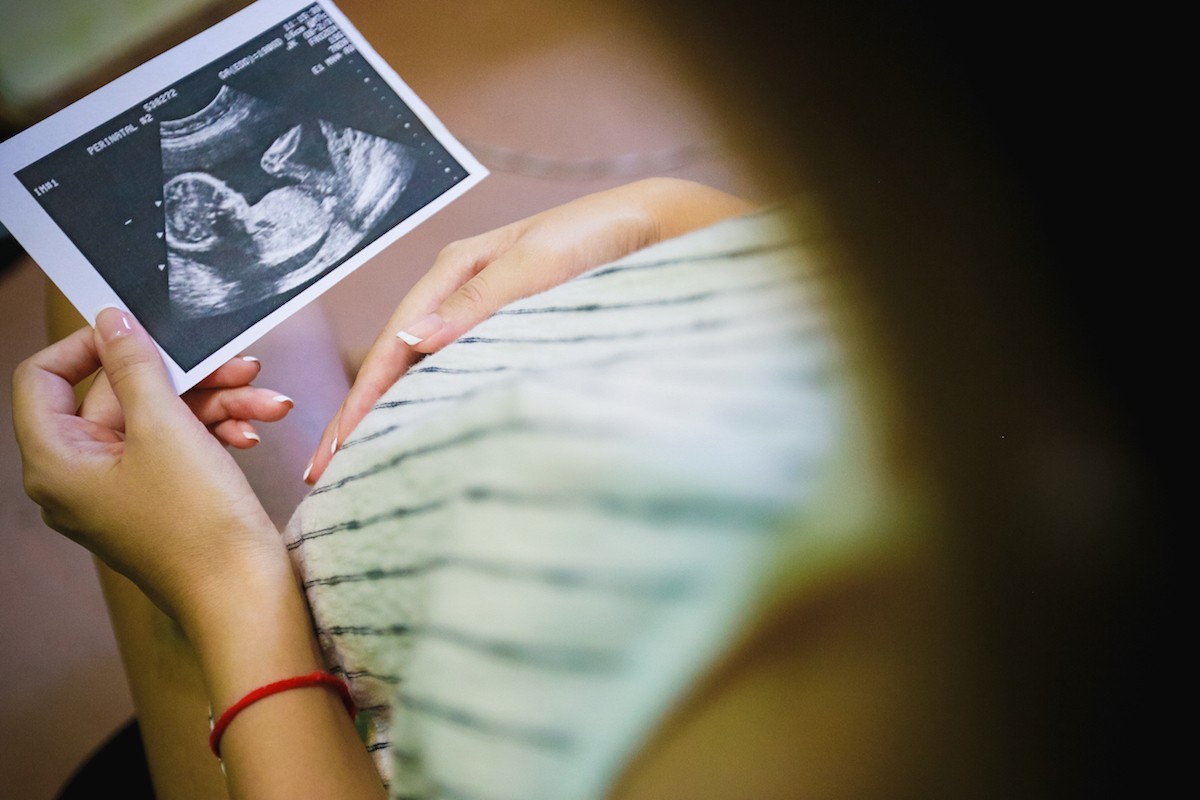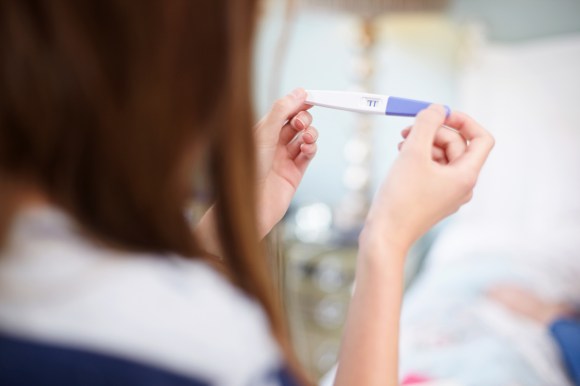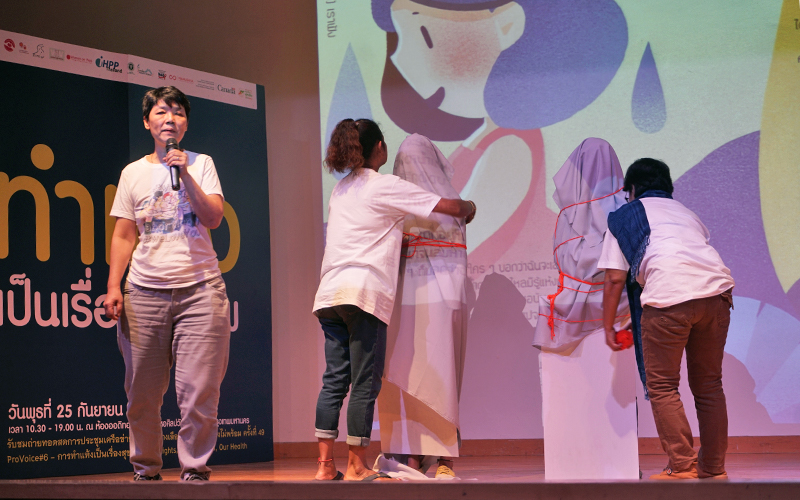Although Thai law was revised last year to allow abortions up to 12 weeks and again this year under some conditions up to 20 weeks, it remains difficult for Thai women to obtain a free and safe abortion.
“If you believe that abortions have become available for all pregnant women who wish to exercise their legal right to an abortion, you are mistaken,” Tamtang Group founder and coordinator Supecha Baotip remarked.
Her organization has long advocated for women’s right to safe abortions, but despite legalization in February 2021, access to abortion services remains extremely limited.
According to Tamtang Group data, about 100 medical facilities provide legally safe abortions. However, the vast majority of them are private clinics. Abortion is unavailable in any governmental hospital in Bangkok, making it out of reach for most Thais in the capital.
“Yet, according to calls to counsellors, Bangkok has the highest number of undesired pregnancies,” Supecha said. “We can recommend the nearest state hospital in Singburi province.”
Struggling to get an abortion
Pure travelled more than 100 kilometers from Bangkok to Singburi province for a free termination at a government hospital nearly two years ago.
Abortion was illegal in Thailand at the time unless the pregnancy resulted from rape or affected the mother’s mental or physical health.
“I couldn’t imagine having a child back then.” “I was just 24 at the time, and my relationship with my partner was unstable,” Pure explained.
Her choice to terminate the pregnancy was also motivated by concerns about her ability to be a good mother. She was also concerned about leaving her job to care for the baby.
“Abortion appeared to be the best option,” she explained.
She contacted the Aids Access Foundation’s 1663 hotline for assistance, but getting an appointment at the Singburi hospital took several weeks. She was five weeks pregnant when she decided to terminate her pregnancy, but by the time she arrived at the hospital, she was eight weeks pregnant.
“I needed to be diagnosed with depression to show that the pregnancy was harming my mental health,” she explained. “My claim also needed to be supported by a witness, in my case, my then-boyfriend.”
Pure successfully terminated her pregnancy and ended her relationship. In retrospect, she believes she made the best option for herself.
She is also glad that the law and Thai society have become more accepting of abortion, formerly considered taboo in the Buddhist-majority country.
Counseling and advice to women
The Aids Access Foundation provides counselling and advice to women experiencing unplanned pregnancies through various channels, including the 1663telephonecsg Facebook page and also the 1663 hotline.
In the 6 months from October last year to March this year, the hotline received phone calls from 41,542 women, 2,947 of whom lived in Bangkok.
Meanwhile, from June to March 31 of 2022, the Tamtang Group answered 1,177 calls for assistance from women, 277 of whom lived in Bangkok.
Both groups assist women seeking abortions in connecting with qualified medical institutions to guarantee their pregnancy is safely ended. Since 2020, the National Health Security Office (NHSO) has covered 3,000 baht for every abortion at public hospitals.
The Planned Parenthood Association of Thailand, which has 9 offices throughout the country, also provides women with counselling and abortion services.
“We provide them with options while also empowering them to make decisions,” said Warunee Tungsiri, deputy director of the Planned Parenthood Association of Thailand’s northeastern branch.
Access to safe abortions
Supecha believes Thailand should do more to guarantee women have access to safe abortions. She stated that while the legislation has already changed, people’s attitudes, particularly those of doctors, should also shift.
Dr. Boonyarit Sukrat, director of the Public Health Ministry’s Bureau of Reproductive Health, stated that abortions are not provided in all hospitals because some patients and doctors oppose the change. He said that some medical workers are uncomfortable terminating pregnancies.
Doctors from the Public Health Ministry, the NHSO, the National Security Office, and the BMA should also take a firm stand on this,” Supecha said.
As a first measure, she advised that authorities distribute letters notifying medical workers of the risks of death or serious harm from improper abortions.
Supecha stated that some medical professionals had only consented to engage with her organization anonymously because they were concerned about Thai society’s sentiments about abortion.
She noted that if their names or jobs were known, it would be extremely difficult for her organization to schedule appointments for women seeking abortions.
Warunee believes that changing people’s opinions should be done gradually to prevent inciting severe opposition from those who oppose abortion.
“We must also respect the rights of medical service providers,” she added.
Women still face unsafe abortions
Prof Dr. Orawee Chintanakan, who works for the Referral System for Safe Abortion (RSA), admitted that she, like many Thais, once thought abortion was a sin. She stated that her belief was influenced by Thai legislation and the religion and mythology she had learned as a child.
“However, in my years of practice, I’ve seen women lose their lives due to unsafe abortions,” Orawee added. “As a result, I believe it is preferable to give women access to safe abortions performed by doctors.”
RSA now employs 174 doctors and over 700 additional volunteers. Cases are referred through Line, and the network has a fund to assist women in need.
Assistant Professor Dr. Thanapan Choobun, who teaches gynecology and obstetrics at Prince of Songkla University, stated that he was formerly reluctant to perform abortion services.
“However, my horizons broadened after speaking with folks from all occupations and backgrounds.” My mindset has also shifted as a result of my personal experience. “I’ve seen patients I turned down return with issues from unsafe abortion services,” he added.
According to Warunee, even older people in rural villages now acknowledge that abortions should be considered when their financial situation prevents them from helping raise grandkids.
“They do not have financial security.” “They claim that monthly state payments for the elderly [ranging between 600 and 1,000 baht] cannot finance child upbringing,” she explained.
Source: Thai PBS


